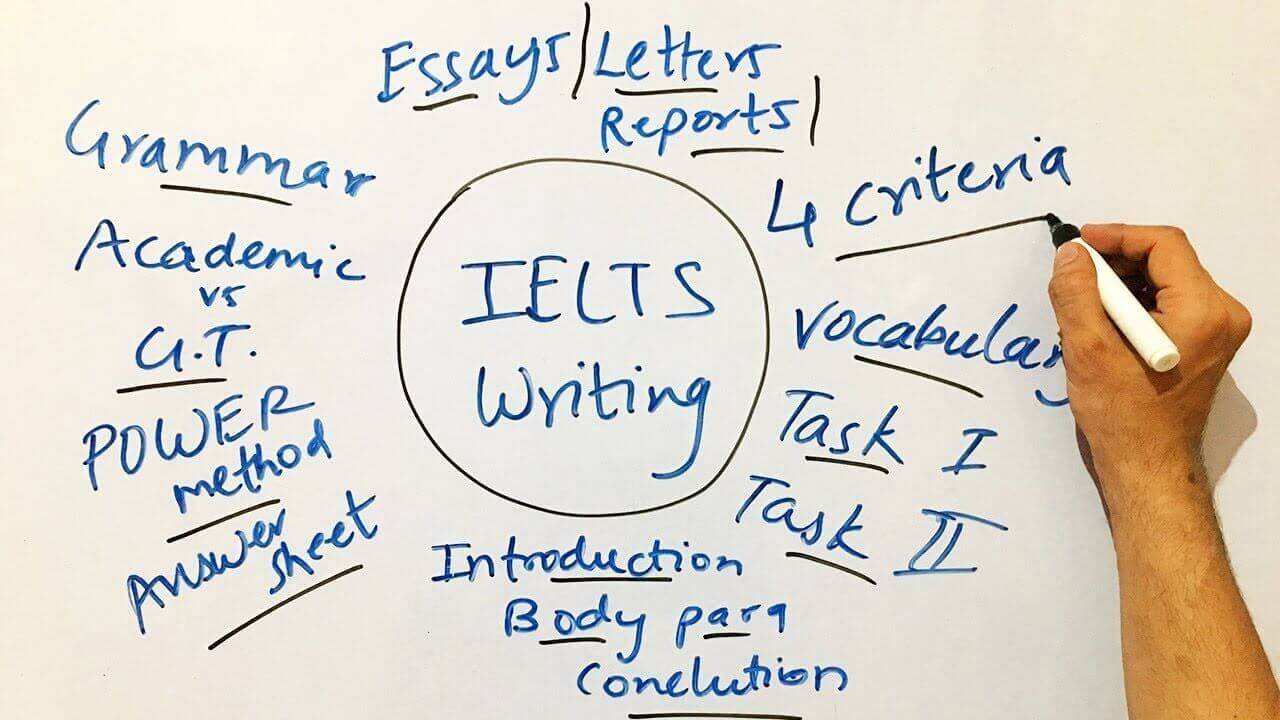IELTS Pre-reading strategies
IELTS pre-reading strategies As we have previously mentioned it is IMPOSSIBLE to read ALL three texts in the IELTS reading exam. So, what can you...
Flexible group courses for everyday communication and fluency.
Academic EnglishPrepare for university study with advanced academic language skills.
Business EnglishEnglish for professional communication in corporate and workplace settings.
Private LessonsOne-to-one lessons tailored to your goals, schedule and interests.
Language ExcursionsLearn English while exploring Cape Town with your teacher as your guide.
Get the score you need with targeted strategies and expert support.
Cambridge ExamsPrepare for the FCE or CAE with structured, high-quality training.
TOEFL PreparationBuild confidence and test skills to succeed in the TOEFL exam.
Personalised one-to-one English lessons delivered online, on your schedule.
Corporate GroupsLive online training for teams, customised to your organisation’s needs.
English for Tech ProfessionalsSelf-paced English course designed for developers, engineers, and IT teams.
Qualify to teach English in South Africa or abroad with this practical course.
Blended Certificate in TEFLCombine online study with hands-on classroom experience in Cape Town.
Learn in a historic university campus right in the city centre.
Tours and ActivitiesExplore Cape Town and make friends through weekly excursions.
Social ProgrammeJoin our schedule of fun events, outings and conversations.
Getting AroundTips and tools for navigating the city like a local.
Social and DigitalStay connected online and through our vibrant student community.
A friendly, sociable student house just a short walk from school.
Adderley StudiosModern, secure apartments in the heart of Cape Town.
HomestayLive with a local family and experience South African culture.
Hotels & AparthotelsIndependent options for comfort, privacy and flexibility.
All tuition and accommodation fees in one clear table.
Booking InformationWhat to expect before, during and after you book.
Instalment PlansFlexible payment options for long-term bookings.
User LoginView your bookings, make payments, and manage your details.
Visa options and support for international students coming to South Africa.
Insurance & TravelWhat you need to know about travel, insurance and staying safe.
MyELC AppAccess your timetable, progress and more on the student app.
Arrival and OrientationHow we help you settle in on your first day in Cape Town.
How to request certificates, transcripts, or proof of enrolment.
Terms & ConditionsThe small print — bookings, cancellations, and more.
Contact UsGet in touch with the ELC team by email, phone or WhatsApp.
Privacy PolicyHow we protect your data and respect your privacy.
What makes ELC and UCT a great place to learn English.
About the University of Cape TownSouth Africa’s leading university and home to the ELC.
About the English Language CentreWho we are, what we offer, and how we teach.
Our TeamMeet the teachers, support staff and leadership team behind ELC.
Our international quality standards and endorsements.
Media & PressNews coverage, interviews and media mentions of ELC.
TestimonialsWhat our students, partners and teachers say about us.
BlogUpdates, stories and insights from the ELC community.
Flexible group courses for everyday communication and fluency.
Prepare for university study with advanced academic language skills.
English for professional communication in corporate and workplace settings.
One-to-one lessons tailored to your goals, schedule and interests.
Learn English while exploring Cape Town with your teacher as your guide.
Get the score you need with targeted strategies and expert support.
Prepare for the FCE or CAE with structured, high-quality training.
Build confidence and test skills to succeed in the TOEFL exam.
Personalised one-to-one English lessons delivered online, on your schedule.
Live online training for teams, customised to your organisation’s needs.
English for Tech Professionals
Self-paced English course designed for developers, engineers, and IT teams.
Qualify to teach English in South Africa or abroad with this practical course.
Combine online study with hands-on classroom experience in Cape Town.
Learn in a historic university campus right in the city centre.
Explore Cape Town and make friends through weekly excursions.
Join our schedule of fun events, outings and conversations.
Tips and tools for navigating the city like a local.
Stay connected online and through our vibrant student community.
A friendly, sociable student house just a short walk from school.
Modern, secure apartments in the heart of Cape Town.
Live with a local family and experience South African culture.
Independent options for comfort, privacy and flexibility.
Use our Course Wizard to match your goals and level to the best option
Course WizardAll tuition and accommodation fees in one clear table.
What to expect before, during and after you book.
Flexible payment options for long-term bookings.
View your bookings, make payments, and manage your details.
Visa options and support for international students coming to South Africa.
What you need to know about travel, insurance and staying safe.
Access your timetable, progress and more on the student app.
How we help you settle in on your first day in Cape Town.
How to request certificates, transcripts, or proof of enrolment.
The small print — bookings, cancellations, and more.
Get in touch with the ELC team by email, phone or WhatsApp.
How we protect your data and respect your privacy.
What makes ELC and UCT a great place to learn English.
About the University of Cape Town
South Africa’s leading university and home to the ELC.
About the English Language Centre
Who we are, what we offer, and how we teach.
Meet the teachers, support staff and leadership team behind ELC.
Our international quality standards and endorsements.
News coverage, interviews and media mentions of ELC.
What our students, partners and teachers say about us.
Updates, stories and insights from the ELC community.

It sometimes feels like the people who set the reading paper of the IELTS exam have deliberately decided to set you an impossible task – and in some ways that is true! If you want to calmly read and consider every sentence, ponder every word and mull over each paragraph, then I can almost guarantee that you won’t complete the test in the time allowed. But this isn’t some cruel game the examiners are playing with you, in fact they do it for a very good reason. As a test that is used for university admission, the IELTS exam has to try and reflect the kind of reading you have to do when studying for a university degree. That is to say, dealing with large volumes of written text, some of which is important to you, but most of which isn’t.
Obviously, the IELTS exam doesn’t present you with a library and tell you to write a thesis! Rather, it gives you three passages (another word for ‘texts’) of about 900 words each, and makes you answer a total of 40 questions, so about 13 or 14 questions for each passage. To complete it successfully in the one hour allowed, the you’ll need to quickly assess the questions and decide what information you’ll need to answer it, analyse the text to decide what information is important to you and where that information is located, and then efficiently understand the meaning of that important information and use it to answer the questions.
The passages could be about almost any topic, from science and technology to history, music, art and architecture. They are generally in a semi-academic, informative style and intended for a reader who has a good level of education but does not necessarily have any specialist knowledge of the subject matter. All the passages are taken from authentic sources, such as journals, magazines and newspapers – so these are ‘real’ texts that were intended for an audience of native English speakers.
There are several different types of questions, each with its own particular format and requiring different strategies from the reader. Some of the most common ones are listed below:
You’ll have a total of one hour to do the whole paper so try to keep to just 20 minutes for each passage. The time is very short, so you’ll need to be smart about how you approach the tasks. For example, it’s usually a good idea to read some (though not necessarily all) of the questions before you start reading, so that you are reading with a purpose. Often the questions go in the same order as the passage, so you can read the questions and the passage at the same time. There might be some sections of the passage that you don’t read at all, because you don’t need that information to answer the questions.
For each reading paper IELTS produces a band score conversion table which will translate your score out of 40 to an IELTS band score from out of nine. The conversion does vary depending on the difficulty of that particular paper, but the score to aim at is 30 points out of 40. Most of the time this will give you a band 7, and if you are just below you’ll still get a perfectly respectable band 6.5. Anything under 20 points and you’re looking at band 5 or below.
Follow our blog for more specific tips and strategies on the IELTS reading and other papers.

IELTS pre-reading strategies As we have previously mentioned it is IMPOSSIBLE to read ALL three texts in the IELTS reading exam. So, what can you...

Reading Strategies for IELTS Before we begin, it’s important to note that there are two types of of question.

Intro to the IELTS Writing Paper Like the rest of the exam, the IELTS academic writing paper takes some the skills and competencies required for...